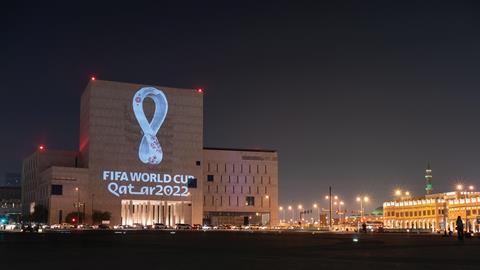Some 56 years after the last major international victory, with 87,192 screaming fans packed into Wembley Stadium,17.4 million avid viewers tuned in at home, and after decades of biding their time and playing the long game, England’s footballing women lifted a trophy high into the air amid rapturous applause. English football is flying high in the wake of the Lionesses’ stunning victory in Euro 2022, but unfortunately the same cannot be said of the UK law enforcement agencies’ ability to crack down on global football-related fraud.
In July, the former president of FIFA, Sepp Blatter, and UEFA’s former president, Michel Platini, were acquitted by a Swiss court on an allegation that a 2011 payment of 2.2 million Swiss francs from FIFA to Platini – which Blatter had approved – was in fact a bribe. Their defence – which the court found had some credence – was that the payment was retrospective salary for Platini’s advisory work from the late 1990s to the early 2000s. Ultimately, the court found that it could not conclusively reject that account, and so dismissed the charges against both men. The prosecution has reportedly filed an appeal.
However, in mid-July Blatter seemingly added to his legal success when it was reported that the Swiss authorities had dropped an investigation (dating back to 2015) into whether he had conspired with Jack Warner, former president of the Confederation of North, Central America and Caribbean Association Football (CONCACAF), over World Cup television rights. The Caribbean Football Union, at the time also controlled by Warner, had acquired rights to the 2010 World Cup in South Africa and the 2014 World Cup in Brazil, which Warner then sub-licensed to his own company, registered in the Cayman Islands, which sold them on for almost $20m.

Away goals rule
Nevertheless, investigations into FIFA-related issues continue in the US, with prosecutions brought against more than 50 corporates and individuals to date. But compared with the Americans (racing to the front of the field) and our European friends (it’s the taking part that counts), the UK is beginning to look like it forgot to bring its kit.
There was, to be fair, initial apparent enthusiasm for the task at hand. In 2015, the Serious Fraud Office revealed that it was looking into possible money laundering connected to FIFA. Although the US was also investigating the alleged underlying corruption, which had a potential UK nexus, then-director David Green QC stated that ‘there is no particular sense in trampling over someone else’s investigation just so that you look to be doing something’. But after that point, progress in the SFO’s investigation seems to have stalled.
This should come as a great surprise given the legal tools at their disposal. The SFO has robust criminal legislation to deploy, including a Bribery Act specifically designed to allow the prosecution of corruption in the modern world, as well as a variety of civil recovery powers which do not require it to climb the high hurdle that is the criminal standard of proof. What is more, given that it is individuals in the line of fire, the SFO’s mantra that it is held back by the difficulty of establishing corporate criminal liability should prove to be no hindrance in this instance.
Yet to keen observers of the SFO’s behaviour, perhaps this should be no surprise at all. Stung by embarrassing defeats in recent years – Barclays, Serco, Unaoil – and with current director Lisa Osofsky given a yellow card by an independent review for her poor judgement and fighting for her survival, the SFO appears to have no desire to pull up its socks and get into the game. It has been some time since it brought a truly significant prosecution, and for the moment seems content to seek easy wins against minor league opponents.

Is it coming home?
Theoretically, it would be relatively easy for the SFO to get among it. For instance, in 2020, the US Department of Justice accused Qatari representatives of bribing FIFA officials to win the hosting rights to the 2022 World Cup. If Qatar’s win was proved to stem from corruption, the UK could join the mix. Under English law it is an offence to enter into arrangements that are suspected of facilitating the use of criminal property – in this case the proceeds of a bribe. By this logic, UK companies entering World Cup-related arrangements (for example, broadcast rights) could technically be facilitating the use of the proceeds of crime, and therefore committing a money laundering offence.
However, perhaps the SFO’s choice to remain on the reserve bench for now is a keen tactical manoeuvre. Given its apparent caution, the lesson it may well take from Switzerland’s failed prosecution of FIFAs ex-leader is that it is unlikely to penetrate the defences of Blatter and his former colleagues. Perhaps the SFO is trying to take a leaf out of the Lionesses’ playbook. Against the adversity and the odds, it may be that the SFO is playing the long game to ultimate victory.
But there will be no trophy lifted on high by an enforcement agency that refuses to take on any real challenge – a team that plays only games it knows it will win. If the SFO wants UK law enforcement to live up to the success of UK football, then it needs to stop clustering around its own goal and go on the attack.
Peter FitzGerald is of counsel and Amalia Neenan a trainee solicitor at Peters & Peters
































No comments yet